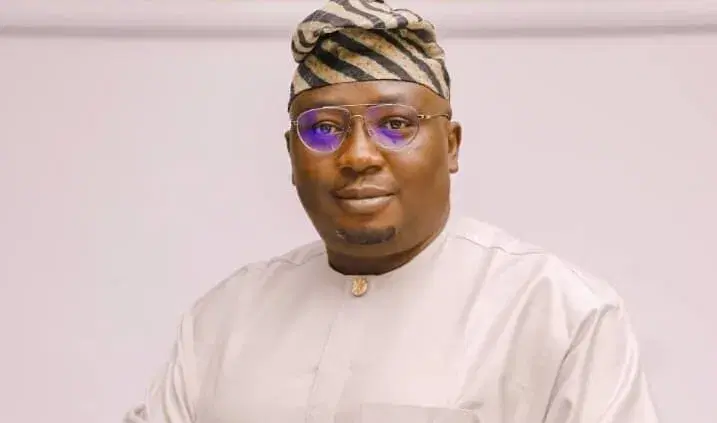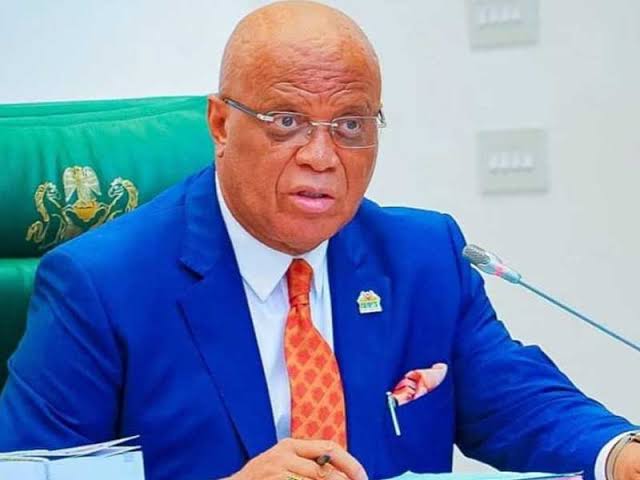
Ending FGM: Schools as Safe Campaign Platforms, ,
Oyo State Ministry of Information and Orientation, in partnership with UNICEF, is leading a push to end Female Genital Mutilation in Nigeria by 2030, rallying teachers, survivors, men, and community leaders to challenge harmful myths and protect the next generation. Funmi Ogundare reports
In a modest classroom at Wisdom High School, Igueben, Benin City, Mrs. Doris Akhere stands before her students, teaching English and Civic Education. But beyond grammar rules and civic duties, she carries a deeper mission, one she believes can save lives and futures.
“I tell young girls and young mothers every chance I get, Female Genital Mutilation (FGM) is not of God, it is not in the Bible, and it only brings pain,” she said with conviction.
For Akhere, who doubles as the school’s Vice-Principal, the fight against FGM is personal and urgent, she told THISDAY at a two-day media dialogue in Edo State, organised by the Oyo State Ministry of Information and Orientation, in partnership with UNICEF.
“I was circumcised just eight days after birth, an ordeal that caused severe bleeding and kept me at Lagos University Teaching Hospital (LUTH) for three months. My family acted on a long-held belief that uncircumcised girls would grow up to be promiscuous. It was not until senior secondary school two, during a Biology class, that I discovered the truth. We were taught that the clitoris is a sensitive organ. That was when I realised what had been taken away from me,” she stated.
According to her, during the holidays, she confronted her mother with what she had learned. Her mother could only apologise, admitting that the act had been a mistake.
The survivor stated that she has taken the message beyond the classroom walls, into churches and community meetings, determined to confront myths that continue to fuel the harmful practice.
She recalled a moment during a church programme when a man challenged her, insisting that an uncircumcised girl would “jump from one man to another”.
“No, it’s not true. The pamphlet I read from UNICEF said it clearly, it’s a myth. It’s not biblical. The Bible only speaks about male circumcision, never females,” she noted.
Akhere paints a vivid picture of the physical and emotional scars left behind by FGM.
“It is like punishing the girl. The surface that should be smooth becomes rough, scarred for life. Beyond the pain, it can cause infections, even ovarian cysts. There is nothing beautiful about it,” she explained.
Her advocacy extends beyond theory. Recently, she received a distress call from a friend whose mother-in-law was pressuring her to circumcise her granddaughter.
“I told her, if she insists, let me know. We will report to the police, female lawyers, and human rights groups. Thankfully, the pressure stopped,” Akhere said.
For her, awareness is a shield and young girls must learn to wield it.
“I tell them, tomorrow you will marry into families you don’t know. Stand your ground. Say no. Protect your daughters when you have them,” she said.
Still, she worries about a generation of girls in Benin City who, left unsupervised by parents working in distant villages, are vulnerable to societal pressures and misconceptions. Some, she observed, mistake outward appearances like wearing multiple earrings as a path to acceptance or quick money.
“They don’t know what they are doing,” she added.
But in her classroom, the vice-principal chooses hope. She blends her teaching of civic values with lessons of self-worth and courage. For her students, the message is clear, their bodies are not objects of tradition or control, but vessels of dignity.
“FGM is not cultural progress, it is harm. It is not biblical. It is punishment,” she stated. “And as long as I have a voice, I will keep telling young girls and parents the truth.”
Another survivor, Jessica Moses, 38, (not real name), described the practice as damaging and without any benefit, urging parents and communities to shun it to protect the next generation.
She recalled how she was cut as a child, believing at the time that her parents intended to protect her. She said many families see the practice as a way of preparing girls for marriage, but do not realise the physical and emotional harm it inflicts.
“It causes a lot of damage. Our parents thought they were protecting us, but they didn’t know they were hurting us. It leaves scars, not just physically but also emotionally,” she said.
Moses explained that survivors of FGM often suffer in silence, struggling with pain, loss of confidence, and trauma that can affect relationships and childbearing. She disclosed how, growing up, girls like her were made to believe that circumcision was a requirement for marriage, a belief that left many fearful and vulnerable.
She reiterated that FGM has no health benefit and instead, creates long-term suffering for women, adding, that society “must reject the idea that it brings dignity or protection” because there is nothing “peaceful about it”.
Moses also called for greater empowerment of women and girls through education and small businesses, stressing that giving them financial independence and confidence would help break the cycle of harmful traditional practices.
In his presentation, Child Protection Specialist, UNICEF, Denis Onoise, stated that FGM has serious implications for the sexual and reproductive health of girls and women, adding that the practice is prevalent in Oyo, Osun, Ondo, Ekiti and Edo.
“Women and girls have right to the highest attainable standards of health, right to life and physical integrity including freedom from violence,” he said.
He explained that cutting the clitoris robs women of their sexual health, a consequence that leaves lasting physical and psychological scars.
Onoise further argued that FGM is neither a necessity nor a cultural practice that should be sustained, saying that subjecting girls to the harmful procedure undermines their happiness and overall well-being.
He urged communities to abandon the practice in order to protect the dignity and future of women and girls.
A FGM Development Expert, Aderonke Olutayo, emphasised that the involvement of men and boys is crucial in driving change, particularly in communities where FGM is most prevalent. She described FGM as a deep-rooted cultural and traditional practice that continues to endanger the health and rights of girls and women.
According to her, survivors often face shame and denial, while lacking access to psychosocial support and healthcare.
“In many communities, FGM is still regarded as a rite of passage and a marital requirement. It is wrongly seen as a way to preserve purity and control sexuality,” she stated.
Olutayo highlighted several factors that hinder efforts to end the practice, including the absence of safe and confidential reporting systems, fear of stigma and social exclusion, limited awareness of laws protecting women and girls, and the silence of many survivors who continue to live with trauma.
The expert reiterated the importance of engaging men in advocacy against FGM, calling for stronger capacity-building for patent medicine vendors, doctors, nurses, and midwives, alongside improved referral systems and coordination across health, justice, media, and law enforcement sectors.
Celine Lafoucrier, Chief of UNICEF Lagos Field Office, described the fight against FGM in Nigeria as both urgent and achievable, warning that the country cannot afford to ignore the scale of the crisis.
According to her, nearly 20 million women and girls in Nigeria have undergone FGM, making the country the third highest globally. She stated that about 86 per cent of affected women report that their FGM occurred before age five. Despite being outlawed, the practice continues across many communities, driven by myths and cultural traditions.
According to the Nigeria Democratic Health Survey, key findings indicate that the prevalence of FGM among Nigerian women is on the decline. Currently, 20 per cent of women aged 15 to 49 have undergone the practice, a drop from figures recorded in 2013.
The data also reveals that most of the procedures occur in early childhood, with 86 per cent of circumcised women cut before the age of five. Only five per cent reported undergoing the practice at age 15 or older, underscoring the vulnerability of young girls who are unable to give consent.
Attitudes towards FGM are also shifting. Among women who have heard of the practice, 78 per cent say it is not required by their religion, while 67 per cent believe it should not continue.
Lafoucrier insisted that “no culture or custom should ever come at the expense of girls’ health, rights or their futur”.
She expressed delight that the tide is turning, pointing to the Movement for Good, a federal government initiative, in collaboration with UNICEF, which is working to dismantle harmful beliefs and protect future generations of Nigerian girls.
“Change is possible, and change is happening,” she said.
Men are also joining the fight. Pastor Ken Izah of the Ark of Refuge Christian Centre, Benin City, told participants that FGM has no basis in the Bible and called it despicable. He stated that he uses every platform available, including his pulpit, to speak against it.
Earlier in his remarks, the Permanent Secretary of the Oyo State Ministry of Information, Mr. Rotimi Babalola, reiterated the state government’s commitment to addressing issues affecting children, particularly the campaign against FGM.
He stressed that media advocacy plays a vital role in the fight to end the harmful practice, adding that similar advocacy initiatives had already been carried out with security agencies and the judiciary to ensure that all stakeholders understand their responsibilities.
“We still have a lot of work to do. Many of us have been part of this campaign, but we need extra effort to completely eliminate FGM,” he said.
He urged the media to sustain their collaboration and intensify public awareness, adding that their continued involvement is crucial to eliminating FGM nationwide.
, Education – THISDAYLIVE, October 1, 2025, 1:01 am












